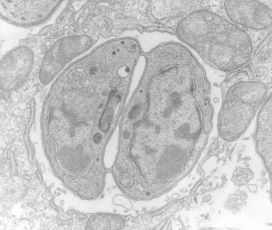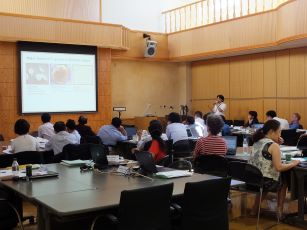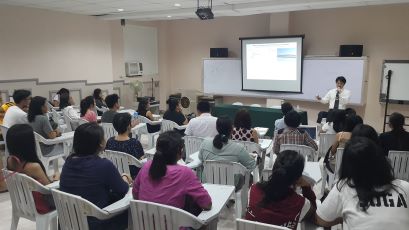- Home
- Social Action
- ★One Health Relay Report #26★
About "Control of pathogenic protozoa"

Profile #26: Dr. NISHIKAWA Yoshifumi, Professor
Research Unit for Host Defense, National Research Center for Protozoan Diseases,
Obihiro University of Agriculture and Veterinary Medicine
【Research Topics】
・Elucidation of the mechanism of protozoan disease
・Vaccine development and drug discovery to control protozoan diseases
・Development of a diagnostic system for infectious diseases that can be implemented in society
~Control of pathogenic protozoa~
The control of pathogenic protozoa requires the integration of basic and applied research. In other words, it is important to have a systematic research approach that allows us to develop realistic treatment and prevention strategies by understanding the mechanisms by which protozoa infect and cause disease, and to evaluate their effectiveness in the field.
Pathogenic protozoa cleverly exploit the metabolic mechanisms of their hosts. For example, Toxoplasma invades various cells, escapes from the host's immune system and takes host nutrition. At the host level, infection can cause a variety of pathologies. For example, malaria causes severe anemia, toxoplasmosis and neosporosis cause miscarriages and neurological symptoms, and cryptosporidiosis causes diarrhea. To elucidate the pathogenic mechanisms of these diseases, we are working to identify pathogenic factors by analyzing the pathogenesis in mice and natural hosts.
By focusing on the pathogenic mechanism of protozoan diseases, it is possible to control the disease. By combining nanoparticles with vaccine antigens, we are developing next-generation vaccines that can induce immune cells capable of attacking the infected cells. We are also conducting drug screening using natural biological resources and compound libraries from around the world in order to develop anti-protozoan drugs.
One of the major missions of researchers is to return the results of their research to society. We are developing a diagnostic system that can be adapted for field diagnostic and epidemiological studies, and are investigating the infection situation in Japan and developing countries, and making recommendations for countermeasures.


Electron micrograph of Toxoplasma gondii Seminar at the OIE/FAO Neglected Zoonoses

Explanation of practical training at the University of the Philippines, Cebu
